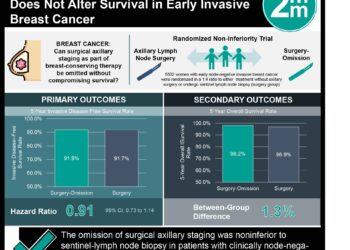Low pre-operative Hepatitis C viral load associated with better survival in hepatocellular carcinoma
Image: PD
Key study points:
1. At five years, recurrence-free survival was significantly higher in the low viral load group compared to those in the high viral load group.
2. Overall survival rate at five years was also significantly higher in the low viral load group versus the high viral load group.
Primer: Hepatocellular carcinoma (HCC) is the ninth leading cause of death in the United States and represents the fasting growing cause of cancer mortality. Nearly 80 percent of cases of HCC are due to chronic hepatitis B and/or hepatitis C infection. Many of the nearly three million people infected with the hepatitis C virus (HCV) are unaware of their infection and fail to receive appropriate intervention leading to persistent and chronic hepatitis. In the United States alone, HCV accounts for approximately one-third of HCC cases. Even with improvements in surgical methods, the resection of HCC is still associated with a high recurrence rate and this is thought to be due to persistent viremia. In this study, the authors hypothesized that the pre-operative HCV viral load could be used to predict long-term survival outcomes in patients with HCC.
Background reading:
1. Pubmed Health: Hepatocellular Carcinoma
2. Hepatocellular carcinoma: Current management and perspective for the future
3. Intrahepatic recurrence after resection of hepatocellular carcinoma complicating cirrhosis
This [retrospective] study: This study included 370 patients with a Child-Pugh class A score who were scheduled to undergo surgical resection of HCC. They were divided pre-operatively into low (n= 168) and high viral load groups (n= 202). Of the 370 patients, recurrence occurred in 108 patients in the low viral load group and 137 patients in the high viral load group. Post-operative viral loads were known in 59 patients; it showed that the HCV-RNA levels were not significantly different in comparison to pre-operative values. Also, HCV-RNA viral loads at 1 year post-operative were higher in the high viral load group.
In sum: This retrospective study has shown that a low pre-operative viral load is associated with a lower recurrence rate and higher overall survival at five years. A higher pre-operative HCV viral load was associated with a nearly 2-fold increase in risk of tumor reoccurrence after surgery. This was shown to be independent of the serologic eradication of HCV. This is an important distinction, as the study indicates that serologic eradication of HCV, which has traditionally thought to have prognostic importance, is not associated with survival in this population; it is actual HCV viral load that is associated with recurrence rate and survival.
With these results, it is reasonable to use HCV viral load as an end-point for antiviral therapy in patients scheduled for surgical resection of HCC. Given that this study was retrospective, perhaps prospective/randomized trials would further elucidate the true significance of HCV viral load and thus the significance of antiviral therapy on post-operative recurrences of HCC. Nonetheless, the authors have demonstrated an important clinical target in the preparation for surgical resection of HCC in patients with chronic hepatitis C infection.
Click to read the study in the Journal of Clinical Oncology
By [BH] and [RR]
More from this author: Autologous bone marrow cell infusion following myocardial infarction elicits no improvement in left ventricular function, Family history is the strongest risk factor for development of Parkinson disease, Intraaortic ballon pump does not show 30-day mortality benefit for MI complicated by cardiogenic shock
© 2012 2minutemedicine.com. All rights reserved. No works may be reproduced without written consent from 2minutemedicine.com. Disclaimer: We present factual information directly from peer reviewed medical journals. No post should be construed as medical advice and is not intended as such by the authors or by 2minutemedicine.com. PLEASE SEE A HEALTHCARE PROVIDER IN YOUR AREA IF YOU SEEK MEDICAL ADVICE OF ANY SORT.





